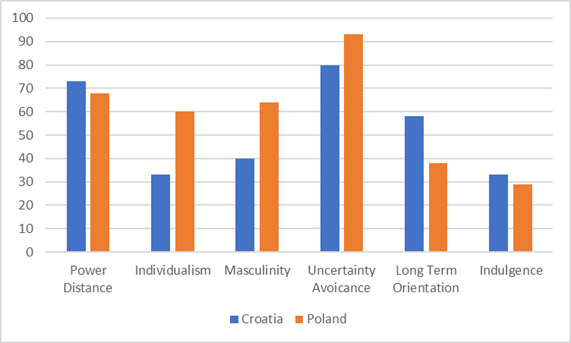|
|
Module 1: Building the ability to work with people from different communities, disciplines, and functions |
|
|
Michael Wildt, Sandra Hogeforster, Anna-Maria Czarny, Christian Wildt |
|
|
Open innovation requires working with people from outside of your organization. Often these people come from different cultures, backgrounds, and communities. Working with such diverse teams is a crucial component for success in innovative teams. To prevent diverse backgrounds to be an obstacle, certain aspects must be considered. After reading this module the reader will receive an overview of different aspects of cultures, how to work with them, and use diversity as an advantage. In addition, different psychological concepts will be explained that facilitate working in teams and reaching the maximum potential of each co-worker. Certain features of your organizational structure will be questioned. To ensure the success of any open innovation strategy with workers from outside of your company cross-functional teams have to be built and work well together. Lastly, setting the right goals and the right long or short-term focus must be thought through when applying any innovation strategy. Especially when it comes to open innovation strategies supervisors must be ready for new perspectives. The ability to work with people from different communities, disciplines, and functions can be learned or enhanced and is the fundament of any open innovation strategy. |
|
Upon completing this module, you should be able to: |
|
Challenge five – Different Focuses

Source: own illustration, data from: https://www.hofstede-insights.com/fi/product/compare-countries/
Note: Hofstede insights doesn’t reflect the culture and attitude of individuals but general tendencies in societies. Therefore, use the results with precaution and don’t judge individuals.
Darian just finished his agriculture degree and starts to work at an SME in Poland. He is surprised by the strong use of pesticides at his new workplace since during his studies he learned various biological pest control techniques and why they are better for the soil in the long term. However, his new employer knows about this, but also has the short-term yields in mind and therefore relies on more pesticides than Darian would recommend.
Often in cultural misunderstandings, there is no clear right and wrong but different perspectives and priorities. Darian would have to accept that his employer has different priorities, and his employer could ask Darian to make a plan on how to reduce pesticide use by applying the knowledge from his home country.